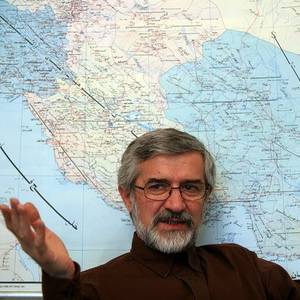Turkey’s International Quest

MM: During the rule of the Justice and Development Party, minimizing tensions with neighbors has been Ankara’s first and foremost concern. At the level of state leaders –and I mean the prime minister and the president- the government has heavily stepped up its diplomatic interaction. The Turks have been quite active in realigning their foreign policy, shifting toward a realistic foreign framework, and mending some old fences.
IRD: Some diplomatic observers say these developments are merely tactics, not a clear-cut strategy. As a typical case in point, they always refer to Israel-Turkey ties, which have been more or less cold within the past few years. Bearing in mind that the Turkish Army is still a powerful political actor, and is also not on good terms with the Islamist Justice and Development Party, do you see a future for these policies?
MM: I have no concrete answer for that at the moment. Overall, their advantages –and not Islamic ideology- determine whether such policies will continue or not. Erdogan’s diplomatic initiatives have been more or less supported by the Turkish media so far.
As is evident, Ankara is trying to follow a middle road in Middle Eastern affairs. To give a short historical perspective, Turkey was one of the first countries in the region to acknowledge Israel since its illegitimate establishment in 1948. Ankara’s ties with the West, its membership in NATO, Ataturk’s macropolicies and secularism, all push Turkey closer Israel.
During recent years Turkey has of course tempered its support for Israel. Despite continuing to maintain its relations with Tel Aviv, Ankara has also resolved its longstanding issues with Syria and other regional states, and revitalized ties with other Muslim countries.
Turkey has also brokered open and backstage negotiations between Israel and Syria (although Israeli politicians believe that during recent years Turkey has been giving Arab and Muslim countries preferential treatment). During the last two years, Israel has gradually lost its trust in Turkey as Ankara has drifted away from their cozy relationship. Turkey no longer permits Israel to use its air space. And the recent Israeli military attack on the human rights groups’ Gaza flotilla, causing civilian Turkish deaths on a Turkish-flagged vessel, will certainly aggravate tensions.
In diplomacy, Erdogan has been an over-achiever, as many experts would admit. But we are talking about Turkey—a country that has had its fair share of military coups against civilian governments. So there are no guarantees the current policies will continue in future. If a civilian administration stays in power, however, Erdogan’s regional and international policies will most likely continue.
IRD: From Russia and Georgia to Afghanistan, Pakistan, and the Middle East, Turkey is trying to serve the role of an honest broker. How do you see Ankara’s efforts in becoming an influential international actor?
MM: Turkey no longer wishes to remain a minor state. The minimum demand of Turkish statesmen –as understood from their remarks- is that they want to become a powerful regional actor. But in a bigger picture, Ankara is seeking a global role. Close ties with the EU and the U.S., its geopolitical position, population, and economic strength; its influence in Central Asia and Caucasia, and its warm relations with Persian Gulf states, all fuel Ankara’s ambitions to become a global actor. Turkey is trying to take the utmost advantage from these potentials to rise as a new international power. This may seem a distant goal, but Turkey is taking the necessary steps.
IRD: With the foothold Turkey has found in Iran’s nuclear case, the balance between Iran and the West has been affected. How will Turkey’s engagement with Iran’s nuclear program influence its diplomatic state of affairs in the future?
MM: Turkey’s main reason for entering negotiations over Iran’s nuclear program is to serve its own national interests. Like other brokering efforts, Ankara’s action serves its ambition to play a more active role in regional and international affairs. The Turks, meanwhile, count on their trade partnership with Iran. They plan to become a regional energy hub as Russia and Iran -their neighbors- possess some of the largest natural gas resources in the world. Ankara knows that the Nabokov project will have no future without Iran’s participation. If another round of UN sanctions targeting Iran passes, Turkey’s economic interest will be affected.
Ankara is trying to keep both Tehran and Washington satisfied with its policies. However, there are serious doubts about the real impact of its engagement –along with Brazil’s- with Iran’s nuclear case. Against the efforts of pro-Iran Turkey and Brazil, there are more powerful countries trying to hamper Iran’s nuclear program through the wielding of international institutions such as the IAEA and the United Nations Security Council.

